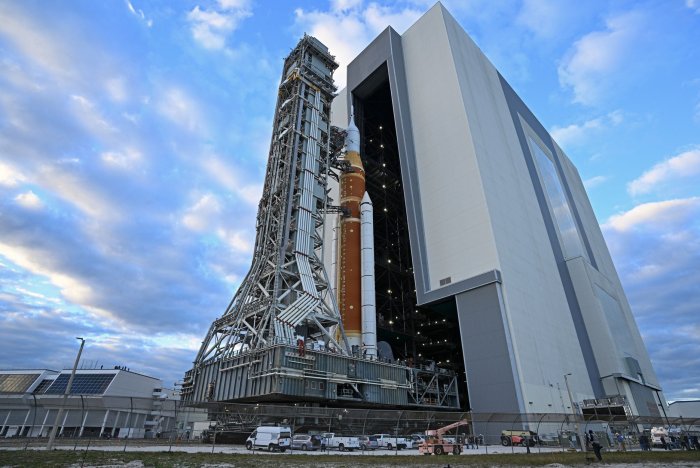NASA to roll back Artemis II for troubleshooting; will miss March launch window
Feb. 24 (UPI) — NASA has delayed the first crewed launch of its Artemis program after encountering a problem with its rocket system.
The space agency said it plans to roll the Artemis II Space Launch System and Orion spacecraft off the launch pad and back into the vehicle assembly building to address the problem Wednesday. The Artemis II SLS rocket has been on launch pad at NASA’s Kennedy Space Center in Florida for more than a month, undergoing testing and rehearsals.
On Tuesday, NASA determined there was an issue with the flow of helium to the upper stage of the rocket. They’ve scheduled the rollback for Wednesday due to high winds Tuesday.
The agency said workers observed the interrupted flow of helium to the interim cryogenic propulsion stage of the rocket on Saturday. The upper stage uses the helium to maintain environmental conditions in the engine and to pressurize liquid hydrogen and liquid oxygen propellant tanks.
NASA said the helium system worked during its wet dress rehearsal earlier this month.
“Teams are reviewing potential causes of the issue, including in the interface between ground and rocket lines used to route helium, in a valve in the upper stage, and with a filter between the ground and rocket,” a NASA blog post said. “They are also reviewing data from Artemis I in which teams had to troubleshoot helium-related pressurization of the upper stage before launch.”
NASA said the rollback means Artemis II will miss its previously planned March launch window. The agency is now eyeing a possible April launch window pending the results of troubleshooting.
Artemis II is NASA’s first crewed mission aboard the SLS rocket and Orion spacecraft. It’s the second flight of the SLS and the first crewed mission near the moon since 1972.
Over 10 days, Artemis II will travel around the moon and back to Earth as the crew tests whether the spacecraft operates as it should in deep space. The long-term goal of the Artemis program is reestablish a human presence on the moon in preparation for the ultimate aim of putting a human on Mars.

